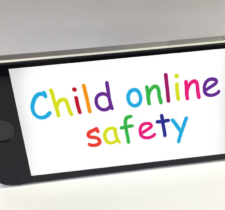The United States of America are attempting to introduce new anti-piracy legislation, the ‘Stop Online Piracy Act’, or SOPA. The bill was introduced by members of the US House of Representatives in late October and would see the disappearance of alleged copyright-infringing websites from the Internet.
Blacklist of allegedly controversial domains
Pursuant to SOPA, the US Department of Justice would have the power to take out a court order against a website believed to be infringing copyright. This court order would then force search engines, Domain Name System providers and Internet advertising firms to make the website in question inaccessible to internet users, thus effectively creating a blacklist of Internet domains and, as some warn, issue forth an era of government censorship.
The bill is supported by major content holders and stakeholders, among them the Motion Picture Association of America, the Directors Guild of America, the Screen Actors Guild, the Copyright Protection Office, and the National Music Publishers’ Association, as well as the heads of all the relevant House and Senate committees, Republican and Democrat alike.
‘American Censorship Day’
While the supporters of SOPA are subscribing to the theory that the bill will help protect US jobs by ensuring that US profits remain on US soil, the proposed legislation has seen fierce opposition from the computer and communications industry.
Google, Facebook, Twitter, Microsoft, Yahoo!, eBay, AOL, Mozzila and other web companies and industry players have all voiced their opposition to SOPA. They have warned the US Senate and the House of Representatives that the act would “pose a serious risk to [their] industry’s continued track record of innovation and job creation, as well as to [the] Nation’s security”.
Also opposing SOPA are some Members of Congress that see the bill as inviting “an explosion of innovation-killing lawsuits and litigation”, law professors that hold it to be unconstitutional and see it as undermining US foreign policy, and civil and human rights advocacy groups from across the globe that warn that the US is attempting to dominate a shared global resource. The latter argue that the US is interfering in international business and economic development, and is censoring online free speech.
The controversial bill was discussed in a House Judiciary committee hearing on 16 November, with the date being named ‘American Censorship Day’.
“Ignores the reality of the Internet”
Apahia’s Chief Consultant Boštjan Makarovič warns: “It is alarming that SOPA completely ignores the reality of the Internet. It is clear to everyone that a law that in this way extends the responsibility for copyright infringement cannot alter the general practice, but can, however, be used to bully individual web content providers. It is in this same way that the industry is already treating individual natural persons by sending them threatening correspondence and isolated lawsuits.”
Picture: Mozzila turns its homepage black on ‘American Censorship Day’ in protest of SOPA





